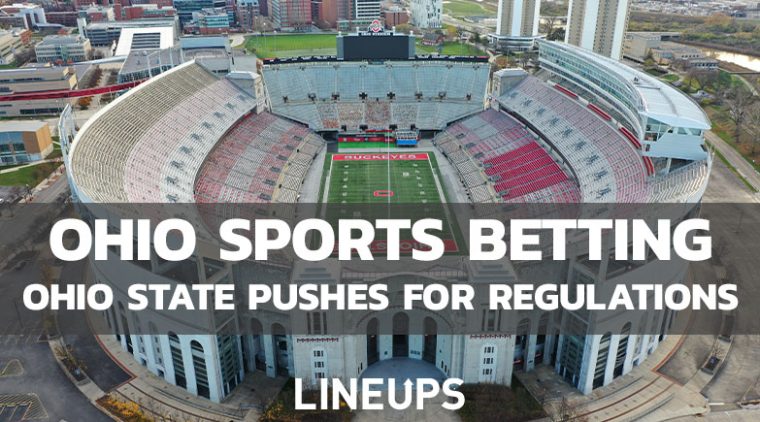Ohio St. University Pushes For Limits on College Betting

Ahead of Ohio Launch
With a legal Ohio sports betting market on the horizon, Ohio State University took to the state’s governing board to request limits on college sports betting prior to its expected legalization in the coming months.
After several months negotiating, Ohio governor Mike DeWine signed HB 29 into law in December 2021, effectively legalizing sports betting in the state. Ohio lawmakers have now spent the first few months of 2022 ironing out the rules and regulations associated with the bill. Out of the legislation process emerged a request from Ohio State University to place restrictions on betting on college sports in the state of Ohio, including OSU athletics.
For The Students
OSU’s Vice President for Governmental Affairs Stacy Rastaukas, submitted the request via email to the Ohio Casino Control Commission, which will regulate sports betting in the state upon its launch. The request outlined several concerns on behalf of OSU on the possible implications that its student body could suffer from on the basis of a legalized, accessible sports betting market that allows wagering on college sports and athletes.
The email stated: “Both athlete and non-athlete students will be exposed to undesirable behaviors surrounding wagering on collegiate events, and we must work together to ensure the best outcome for both our student population and the state of Ohio.”
The university also urged the commission to “dedicate educational and addiction-related programming funding for high school and post-secondary students as part of the implementation of sports wagering in Ohio.” They “stand ready as a partner to assist in the development of programming and allocation mechanisms for the educational and problem gaming set-asides.”
Details of The Request
Some of the specific suggestions included in the email included limiting college wagering to football and basketball only, prohibiting prop betting, disallowing any member of the athletic department (player, coach, official, administrator, trainer) to participate in wagering, and penalizing any bettors involved in coercion or obtaining inside information.
Requesting limitations to certain sports and banning prop betting was largely related to preventing young college athletes from being ridiculed and threatened by angry bettors on the basis of small mistakes such as a missed field goal or free throw.
Ohio Not Alone
Restrictions such as these on college sports wagering is a topic of growing concern as the industry continues its rise across the U.S. Should the request regarding prohibition of prop betting on college sports, Ohio would join Colorado, Indiana, Iowa, and Tennessee in allowing wagering on college sports sans prop bets.
There are also several other states that have paved the way for Ohio, having some sort of restriction on in-state college sports betting in particular. Connecticut, Delaware, Illinois, Maryland, New Hampshire, New Jersey, New York, Rhode Island, South Dakota, Virginia, Washington, and Wisconsin all ban wagering on in-state college sports teams. Then there are other states, such as Oregon, that ban betting on college sports altogether.
It is unknown the exact status of the bill as it relates to these amendments however the initial bill that was signed in December included no prohibitions on college sports wagering so as it stands there is nothing in writing that restricts such activities. Ohio lawmakers have until January 1, 2023 to make all required changes at which point they will be able to launch their sports betting market.